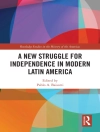Of the many innovative approaches to emerge during the twenty-first century, one of the most productive has been the interdisciplinary nexus of theories and methodologies broadly defined as “the study of emotions.” While this conceptual toolkit has generated significant insights, it has overwhelmingly focused on emotions as linguistic and semantic phenomena. This edited volume looks instead to the material aspects of emotion in German culture, encompassing the body, literature, photography, aesthetics, and a variety of other themes.
Jadual kandungan
Illustrations
Acknowledgments
Introduction
Derek Hillard, Heikki Lempa, and Russell Spinney
PART I: EMOTIONS AND BODIES
Chapter 1. Mesmerizing Encounters: Affect and Animal Magnetism
Sara Luly
Chapter 2. Emotional Contagions: Franz Liszt and the Materiality of Celebrity Culture in the 1830s and 1840s
Hannu Salmi
Chapter 3. Reading Embodied Emotions in Rilke’s Die Aufzeichnungen des Malte Laurids Brigge
Derek Hillard
Chapter 4. Embodied Emotions: On the Communist Habitus of Agitprop
Sabine Hake
Chapter 5. A Skin of Hatred: How Bodies Are Involved in the Memory of Emotions and Anti-Semitic Practice of the Weimar Republic
Russell Spinney
PART II: EMOTIONS, SPACES, AND MATERIAL INTERESTS
Chapter 6. Early Modern Embodiments of Laughter: The Journal of Felix Platter
Joy Wiltenburg
Chapter 7. Beyond Interiority: Shame and Empathy in Karl Philipp Moritzʼs Anton Reiser
Christian Sieg
Chapter 8. Gambling and Emotion
Jared Poley
Chapter 9. Emotions and Material Interests in the Sales Talk of German Spa Guides, 1820–1914
Heikki Lempa
PART III: EMOTIONS AND THINGS
Chapter 10. The Paper Bird: Emotions and Things in the Pedagogy of Johann Heinrich Pestalozzi and Friedrich Fröbel
Ann Taylor Allen
Chapter 11. Reading Early German Photographs for Histories of Emotion
Sarah Leonard
Chapter 12. The Emotional Language of Flowers
Ute Frevert
Chapter 13. Banners and Flags, Mottoes, Lieder: German Choral Societies and Material Culture, 1871–1918
Ruth Dewhurst
Chapter 14. Corporeality, Materiality, and Unnamed Emotions in Rilke’s Dinggedichte
Lorna Martens
Chapter 15. Inscribing Grief: Private Practices of Bereavement in Wartime
Erika Quinn
Mengenai Pengarang
Russell A. Spinney is an independent historian and instructor at the Thacher School in Ojai, California. He recently co-authored and edited a special issue of Contemporary European History on the history of emotions in twentieth-century Europe.












